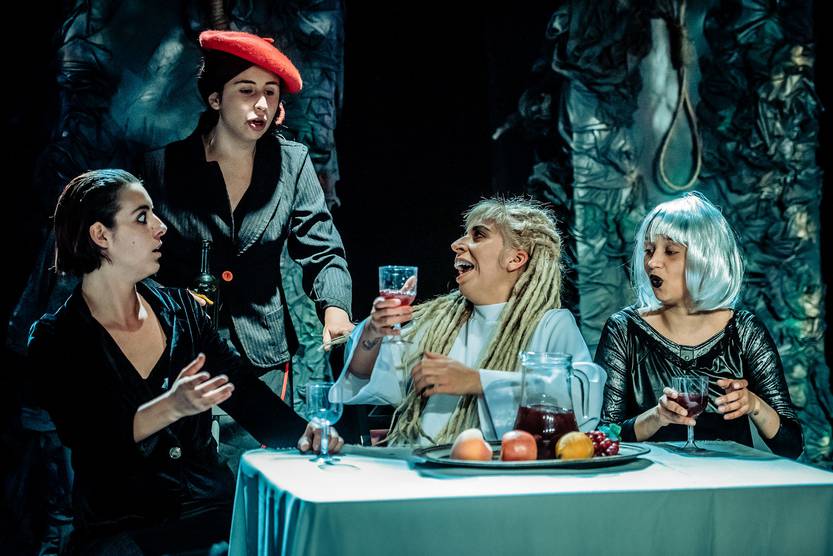The Extraordinary Autonomous Community Theater Company (Cecta), which recently premiered Posthumous at Espacio Palermo, it is a fictional theater company, created by the cast and the director through a process of investigation and improvisation, in response to a series of triggers, according to one of its members. The work that we will comment on here apparently has many diffuse limits. Where to begin? Could this question of difficulty be linked to “estrangement”? These are questions that probably represent the state in which the viewer is when the work ends.
In principle we will highlight the first conceptual element that is installed in a transversal way and that is also formulated as a question: where are the playwrights? This idea of disappearance will be part of the postulate of the work, in which the perspective of the ephemerality of art is revealed.
The scene begins with the actors coming out of different places, as if it were a circus show. The magnificent possibilities of the theater allow them to use all the available spaces, so they appear from above, up the stairs, from the sides, even below the stalls. As they look at the viewer, they install a staging that proposes a dystopian universe in which we can recognize piled-up technological junk and a dominant structure that fulfills different functions.
The work is designed in levels. On the one hand, the thematic axis of the disappearance of the playwrights, which is functional in the spinning of the other levels: the micro scenes in which some moments in the history of humanity are critically parodied, by means of a non-linear time.
Dramaturgy makes use of all the necessary resources to establish two complex ideas: that theater is a tool for questioning and analysis for life, and the presentation of evidence that human beings have been leaving behind, as an indicator that the species is in danger.
In this sense, throughout the work, some very eclectic cultural nods can be recognized, ranging from Hamlet to The crazy history of the world, by Mel Brooks, with Kusturica-style music and the conception of technology as a determining factor for the extinction of the species, very Black mirror. A selection – with some more obvious references than others – in which a central element is identified: the focus on human actions as the key to all problems.
The wardrobe plays an important role at all times. As a uniform, he manages to erase the differences between the characters and installs us in an unidentified time. On the other hand, when the scenes need it, the costumes respond to the aesthetic game in a perfectly assembled dialogue with the proposal.
The character actors always remind us that nothing exists, that everything is an invention, an excuse to experience the theater. In that conception, almost manifest, they leave everything, they exploit the space with a beautiful display of movements as if that were the last of their acts. On Posthumous We see a group of young actors and actresses – members of the 2018 Generation of the Montevideo Acting Institute, who graduate with this work – making a powerful display from the body and the voice, with evident dominance. They are all good. Everyone has their moment, to which they give themselves, in a playful way, to defend a work that demands a lot from them.
With Posthumous the viewer will undoubtedly leave with the desire to continue seeing the work of this cast, which shows that our theater has a rich future.
Posthumous. By Gerónimo Pizzanelli and Franco Pisano. Directed by Marcel Sawchik. Thursday and Friday at 9:00 p.m. Palermo space. Reservations at 2418 6867.





